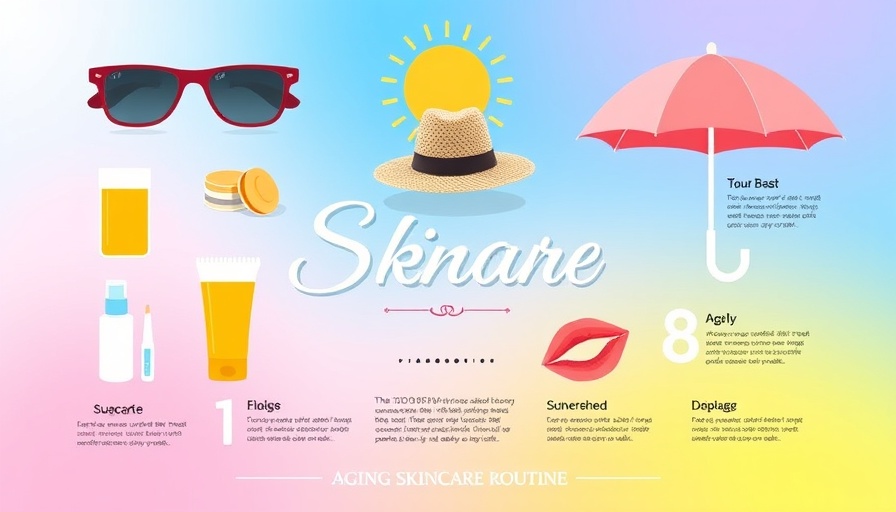
Understanding Skincare: Nurturing Your Skin as You Age
As we journey through life, our skin experiences numerous changes influenced by factors such as age, environment, and lifestyle choices. The health of our skin is a reflection of how well we care for it, especially as we age. This article draws inspiration from recent scientific research, highlighting the most effective strategies for maintaining youthful skin and enhancing our overall health through skincare.
Key Lifestyle Factors That Impact Skin Health
Research reveals that lifestyle choices significantly influence skin aging. One of the most critical factors is diet. A whole food, plant-based diet rich in antioxidants can help promote healthier-looking skin. Foods like berries, leafy greens, and nuts provide vital nutrients that can potentially improve skin elasticity and reduce the appearance of wrinkles.
Moreover, physical activity is an essential aspect of healthy aging. Regular exercise increases blood flow, delivering oxygen and nutrients to the skin while removing toxins. It's not just about looking younger; it's about feeling vibrant and maintaining that internal glow.
The Role of Sun Protection in Anti-Aging
One of the most crucial recommendations for maintaining youthful skin is the diligent use of sunscreen. A landmark randomized controlled trial demonstrated that consistent application of sunscreen can significantly slow the aging of skin. Experts recommend using sunscreens containing safe ingredients like zinc oxide and titanium dioxide, which protect against harmful UV rays without adverse effects.
Exploring Topical Treatments That Work
Topical retinoids, such as tretinoin, have gained attention for their ability to reverse signs of skin aging. These compounds promote cell turnover and collagen production, helping to diminish fine lines and improve overall texture. Coupled with topical vitamin C, known for its antioxidant properties, these treatments can lead to visibly younger skin.
However, not all cosmetic procedures are created equal. While treatments like Botox and facelifts are often deemed effective, it's essential to weigh their risks and benefits. Research indicates that while these options can offer immediate results, they may carry complications that should not be overlooked.
Common Misconceptions About Skincare Products
With the beauty industry booming, many consumers fall prey to misleading marketing. Not all chemical peels and fillers are safe or effective. Some experts argue that these may do more harm than good, particularly when improperly applied. Education on these topics is vital for making informed decisions about skincare treatments.
Emotional Wellness and Skincare
Beyond physical appearance, emotional wellbeing plays a significant role in how we perceive ourselves. Taking time for consistent skincare routines can also serve as a form of self-love, promoting relaxation and reducing stress. Engaging in a nurturing practice can boost confidence and help individuals feel better about the aging process.
In Summary: A Holistic Approach to Skincare
Ultimately, skincare as you age isn't solely about creams and treatments; it's a multifaceted approach that encompasses a healthy lifestyle, proper sun protection, informed choices about treatments, and emotional wellbeing. Understanding and embracing these elements can lead to both healthier skin and a more fulfilling life.
This comprehensive view on skincare strategies highlights the growing connection between our skin health and overall wellness. As you navigate the aging process, remember that there are practical steps and evidence-based strategies that can help you maintain youthful and vibrant skin.
 Add Row
Add Row  Add
Add 



Write A Comment